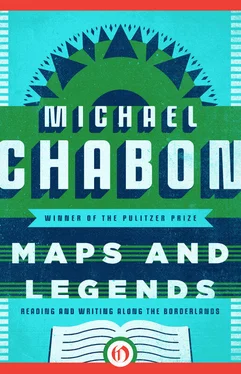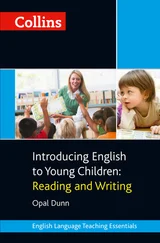Michael Chabon - Maps and Legends - Reading and Writing Along the Borderlands
Здесь есть возможность читать онлайн «Michael Chabon - Maps and Legends - Reading and Writing Along the Borderlands» — ознакомительный отрывок электронной книги совершенно бесплатно, а после прочтения отрывка купить полную версию. В некоторых случаях можно слушать аудио, скачать через торрент в формате fb2 и присутствует краткое содержание. Год выпуска: 2011, Издательство: Open Road Media, Жанр: Критика, Публицистика, на английском языке. Описание произведения, (предисловие) а так же отзывы посетителей доступны на портале библиотеки ЛибКат.
- Название:Maps and Legends: Reading and Writing Along the Borderlands
- Автор:
- Издательство:Open Road Media
- Жанр:
- Год:2011
- ISBN:нет данных
- Рейтинг книги:5 / 5. Голосов: 1
-
Избранное:Добавить в избранное
- Отзывы:
-
Ваша оценка:
- 100
- 1
- 2
- 3
- 4
- 5
Maps and Legends: Reading and Writing Along the Borderlands: краткое содержание, описание и аннотация
Предлагаем к чтению аннотацию, описание, краткое содержание или предисловие (зависит от того, что написал сам автор книги «Maps and Legends: Reading and Writing Along the Borderlands»). Если вы не нашли необходимую информацию о книге — напишите в комментариях, мы постараемся отыскать её.
Maps and Legends: Reading and Writing Along the Borderlands — читать онлайн ознакомительный отрывок
Ниже представлен текст книги, разбитый по страницам. Система сохранения места последней прочитанной страницы, позволяет с удобством читать онлайн бесплатно книгу «Maps and Legends: Reading and Writing Along the Borderlands», без необходимости каждый раз заново искать на чём Вы остановились. Поставьте закладку, и сможете в любой момент перейти на страницу, на которой закончили чтение.
Интервал:
Закладка:
At the same time, of course, there is a difference, right? and sometimes an enormous difference, between, say, Raymond Chandler’s “The King in Yellow,” and F. Scott Fitzgerald’s “Crazy Sunday,” even though they are both set in and around Hollywood in roughly the same period. A difference that consists not merely of details of backdrop, diction, mores, costume, weather, etc., nor merely of literary style, nor of the enormously different outlook and concerns of the respective writers. If that was all there was to it, the distinction would be akin to that between any two books, chosen at random, from the shelves in the tony part of the bookstore: say, Kathy Acker and William Trevor. (Keep that question in mind, though. Ask yourself just how damned different a book has to be, on the inside, from its neighbors, to get it consigned to the genre slums at the local Barnes & Noble. More different than Moby-Dick is from Mrs. Dalloway?)
No, there are those conventions to be considered. These things — mystery, sf, horror — have rules. You can go to the How to Write section, away from the teeming ghettos, and find the rules for writing good mystery fiction carefully codified in any number of manuals and guides. Even among experienced, professional writers who have long since internalized or intuited the rules, and thus learned to ignore them, there are, at the very least, particular conventions — the shuttling of the private eye from high society to the lower depths, the function of a literary ghost as punishment for some act of hubris or evil — that are unique to and help to define their respective genres. Many of the finest “genre writers” working today, such as the English writer China Miéville, derive their power and their entertainment value from a fruitful self-consciousness about the conventions of their chosen genre, a heightened awareness of its history, of the cycle of innovation, exhaustion, and replenishment. When it comes to conventions, their central impulse is not to flout or to follow them but, flouting or following, to play.
Whether through willfulness, ignorance, or simple amour propre, what tends to be ignored by “serious” writers and critics alike is that the genre known (more imprecisely than any other) as “literary fiction” has rules, conventions, and formulas of its own: the primacy of a unified point of view, for example; letters and their liability to being read or intercepted; the dance of adulterous partners; the buried family secret that curses generations to come; the ordinary heroism of an unsung life. And many of literary fiction’s greatest practitioners, from Jane Austen to Angela Carter, Salman Rushdie to Steven Millhauser, display a parallel awareness of the genre’s history and conventions, and derive equivalent power and capacity to delight from flouting, mocking, inverting, manhandling, from breaking or ignoring the rules.
Like most people who worry about whether it’s better to be wrong or pretentious when pronouncing the word “genre,” I’m always on the lookout for a chance to drop the name of Walter Benjamin. I had planned to do so here. I intended to refer to Benjamin’s bottomless essay “The Storyteller,” and to try to employ the famous distinction he makes in it between the “trading seaman,” the storyteller who fetches his miracle tales, legends, and tall stories from abroad, and the “resident tiller of the soil” in whose memory are stored up all the sharp-witted wisdom tales, homely lore, and useful stories of a community. Benjamin implies that the greatest storytellers are those who possess aspects, to some extent, of both characters, and I was thinking that it might be possible to argue that in the world of the contemporary short story the “naturalistic” writers come from the tribe of the community-based lore-retellers, while the writers of fantasy, horror, and sf are the sailors of distant seas, and that our finest and most consistently interesting contemporary writers are those whose work seems to originate from both traditions. But that claim felt a little shaky to me — for one thing, it ignores entirely the work of experimentalists like Ben Marcus or Gary Lutz — and as I invoke the idea of playfulness, of mockery and inversion, the dazzling critic whose work I find myself thinking of most is Lewis Hyde, whose Trickster Makes This World rewards rereading every bit as endlessly as any work of Benjamin’s.
Hyde’s masterpiece concerns the trickster of mythology — Hermes among the Greeks, the Northmen’s Loki, the Native Americans’ Coyote and Raven and Rabbit, the Africans’ Eshu and Legba and Anansi (who reappear in our own folklore in slave stories of High John de Conquer and Aunt Nancy), Krishna, the peach-stealing Monkey of the Chinese, and our own friend Satan, shouting out who killed the Kennedys, when, after all, it was you and me. Trickster is the stealer of fire, the maker of mischief, teller of lies, bringer of trouble, upset, and, above all, random change. And all around the world — think of Robert Johnson selling his soul — Trickster is always associated with borders, no man’s lands, with crossroads and intersections. Trickster is the conveyer of souls across ultimate boundaries, the transgressor of heaven, the reconciler of opposites. He operates through inversion of laws and regulations, presiding over carnivals and feasts of fools. He is hermaphrodite; he is at once hero and villain, scourge and benefactor. “He is the spirit of the doorway leading out,” as Hyde writes, “and of the crossroad at the edge of town (the one where a little market springs up).” For Trickster is also the god of the marketplace, of the city as intersection of converging roads and destinies, as transfer point — as the primary locus of entertainment, that powerful means of exchange — and perhaps that is why cities, Indianapolis excepted, have always been built at the places where incommensurates meet — sea and land, mountain and plain, coast and desert. Trickster goes where the action is, and the action is in the borders between things.
In spite of the continuing disdain or neglect in which most of the “nonliterary” genres are held, in particular by our finest writers of short stories, many if not most of the most-interesting writers of the past seventy-five years or so have, like Trickster, found themselves drawn, inexorably, to the borderlands. From Borges to Calvino, drawing heavily on the tropes and conventions of science fiction and mystery, to Anita Brookner and John Fowles with their sprung romance novels, from Millhauser and Thomas Pynchon to Kurt Vonnegut, John Crowley, Robert Aickman, A. S. Byatt, and Cormac McCarthy, writers have plied their trade in the spaces between genres, in the no man’s land. These great writers have not written science fiction or fantasy, horror or westerns — you can tell that by the book jackets. But they have drawn immense power from and provided considerable pleasure for readers through play, through the peculiar commingling of mockery and tribute, invocation and analysis, considered rejection and passionate embrace, which are the hallmarks of our Trickster literature in this time of unending crossroads. Some of them have even found themselves straddling that most confounding and mysterious border of all: the one that lies between wild commercial success and unreserved critical acclaim.
It is telling that almost all of the writers cited above, with the notable exception of Borges, have worked primarily as novelists. This is not, I firmly believe, because the short story is somehow inimical to the Trickster spirit of genre-bending and stylistic play. There are all kinds of reasons, some of which have to do with the general commercial decline of the short story and the overwhelming role, which I have only touched on lightly, that business decisions play in the evolution of literary form. But among our most interesting writers of literary short stories today one finds a growing number — Kelly Link, Elizabeth Hand, Aimee Bender, Jonathan Lethem, Benjamin Rosenbaum — working the boundary: “sometimes drawing the line,” as Hyde writes of Trickster, “sometimes crossing it, sometimes erasing or moving it, but always there,” in the borderlands among regions on the map of fiction. Because Trickster is looking to stir things up, to scramble the conventions, to undo history and received notions of what is art and what is not, to sing for his supper, to find and lose himself in the act of entertaining. Trickster haunts the boundary lines, the margins, the secret shelves between the sections in the bookstore. And that is where, if it wants to renew itself in the way that the novel has done so often in its long history, the short story must, inevitably, go.
Читать дальшеИнтервал:
Закладка:
Похожие книги на «Maps and Legends: Reading and Writing Along the Borderlands»
Представляем Вашему вниманию похожие книги на «Maps and Legends: Reading and Writing Along the Borderlands» списком для выбора. Мы отобрали схожую по названию и смыслу литературу в надежде предоставить читателям больше вариантов отыскать новые, интересные, ещё непрочитанные произведения.
Обсуждение, отзывы о книге «Maps and Legends: Reading and Writing Along the Borderlands» и просто собственные мнения читателей. Оставьте ваши комментарии, напишите, что Вы думаете о произведении, его смысле или главных героях. Укажите что конкретно понравилось, а что нет, и почему Вы так считаете.












